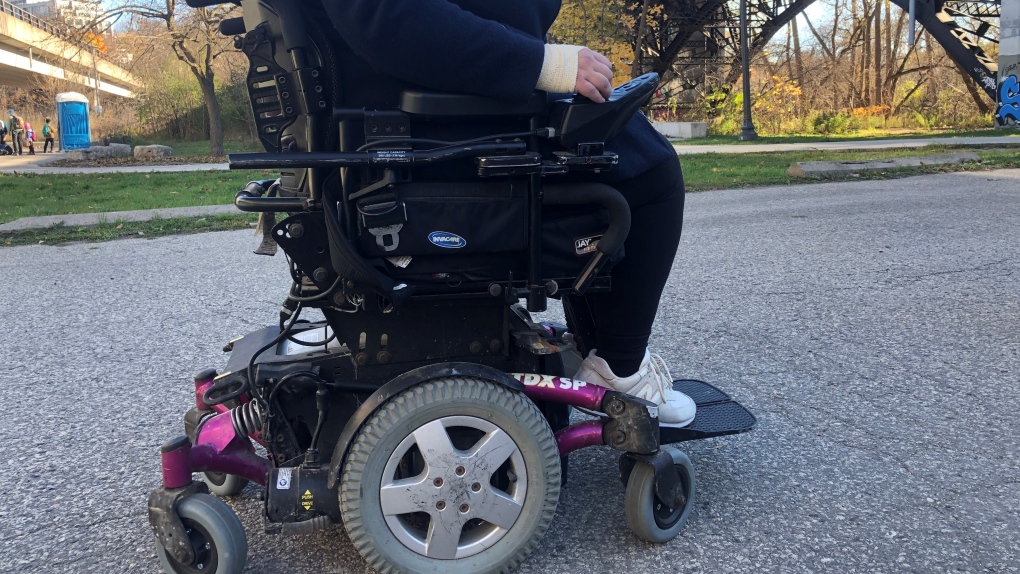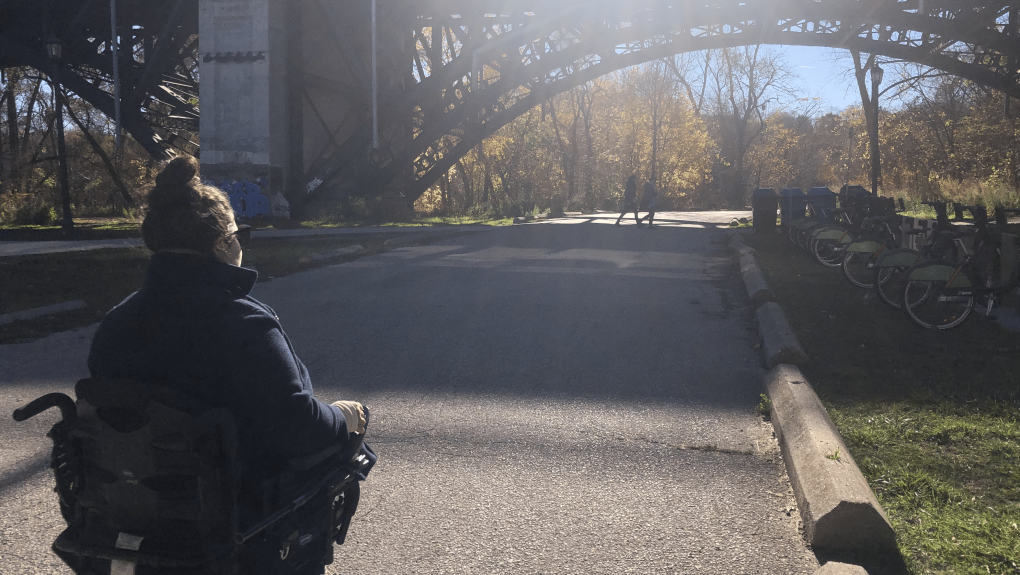風蕭蕭_Frank
以文會友Toronto woman in final stages of MAiD application after nearly a decade-long search for housing
Why this Toronto woman is seeking MAID
A disabled 32-year-old woman says she is in the final stages of requesting a medically-assisted death after seven futile years of applying for affordable housing in Toronto.
Denise, whose real name has been omitted to protect her identity, suffers from a condition known as Multiple Chemical Sensitivity. Exposure to chemicals that commonly linger in households, like laundry detergents and air fresheners, triggers debilitating symptoms.
Her skin develops rashes, she suffers blinding headaches that can provoke temporary paralysis, and the constant risk of an anaphylactic episode looms over her.
This has made securing housing a seemingly impossible pursuit.
RELATED STORIES
Following a CTV National News article published this spring detailing her pending approval for medical assistance in dying (MAiD), Denise said the outpouring of public support she received evoked a glimmer of hope for her future. But now, it's beginning to dull.
“I’ve been given this quasi hope where I see a way that I could survive now … the pieces just aren’t adding up and the money is the clock,” she said.
MAiD was legalized in Canada in 2016 for candidates whose natural death was reasonably foreseeable and later amended to include Canadians enduring an “intolerable” and “irreversible” illness, disease or disability.
More than 1,000 donors raised money in the spring to help Denise secure permanent housing in a wheelchair-accessible space with uncontaminated air. But six months later, she is still searching for a home as funds and time run out.
“I currently have two months left,” Denise said, nodding to her remaining pool of money.
“I have requested final approval for MAiD,” she said.
TEMPORARY RELIEF
At a hotel in Toronto, perched on a ravine surrounded by trees and fresh air, Denise was finally able to take off her respirator and breathe in the spring.
The hotel was the only temporary accommodation she could find that was willing to pause their use of cleaning products with fragrances and chemicals 24-hours before her arrival.
In her last apartment, she couldn’t escape the chemicals.
Denise, who has been a wheelchair user for six years as a result of an upper spinal cord injury, is a recipient of Ontario’s Disability Support Program (ODSP). She calls her $1,278 a month “government-regulated abject poverty.”
The plan was never to stay at the hotel for an extended period of time. “This is completely unsustainable,” Denise said. But months later, she remains in the room.
“I’m ashamed I’m still here.”
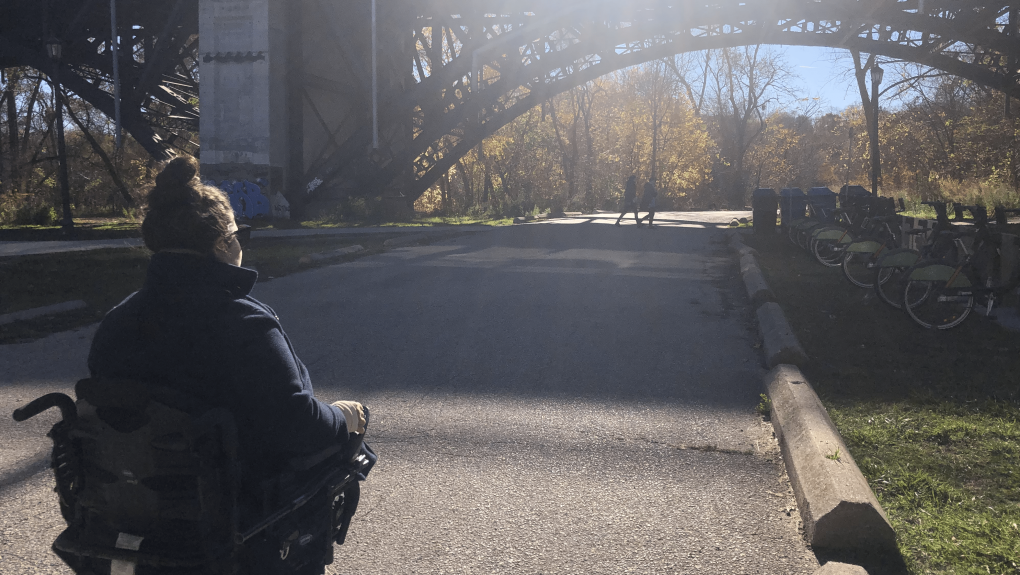 In October, Denise toured a city-run unit offering below-market rent for the first time – something she’d been searching for for the better part of a decade.
In October, Denise toured a city-run unit offering below-market rent for the first time – something she’d been searching for for the better part of a decade.
But when she saw the available space, she found it to be unlivable.
“The first housing that I saw did not have adequate air flow. There was only one window. There was a mold smell in the bathroom, dead cockroach carcasses,” she said.
“This is where it becomes an accessibility issue because essentially, there are no affordable rentals in the city that are designed or accommodate Multiple Chemical Sensitivity.”
HOUSING AS A HUMAN RIGHT
Toronto-St. Paul's MPP Jill Andrew said her office reached out to Denise in March after hearing about her fruitless bid for safe and affordable housing.
“The precarity of Denise’s situation should never happen, but this is the devastating reality for precariously housed individuals in Ontario,” Andrew told CTV News Toronto.
Her team wrote letters to Premier Doug Ford, along with Steve Clark, the minister of municipal affairs and housing, and Merrillee Fullerton, the minister of children, community and social services.
“To my knowledge, none of these letters have been responded to,” Andrew said.
“No one should have to seek Medical Assistance in Dying (MAiD) because of a government’s refusal to act in the best interests of individuals experiencing homeless or disability. Denise needs the Ontario government to act today. She has no more time to spare."
Ontario’s minister of municipal affairs and housing told CTV News Toronto the provincial government has delivered “historic results” in building more housing to address homelessness for vulnerable Ontarians, alongside a five per cent ODSP increase in September.
However, he did not directly address Denise’s situation.
The executive director of Toronto's housing secretariat, Abigail Bond, said the city is “disheartened” by news of a resident considering MAiD and hopes Denise will reconsider.
Bond said the city is actively helping Denise obtain “suitable housing,” which includes options in the private market and through the city's housing partners. She added the city has helped Denise secure a portable housing benefit that assists with rental costs in the private market.
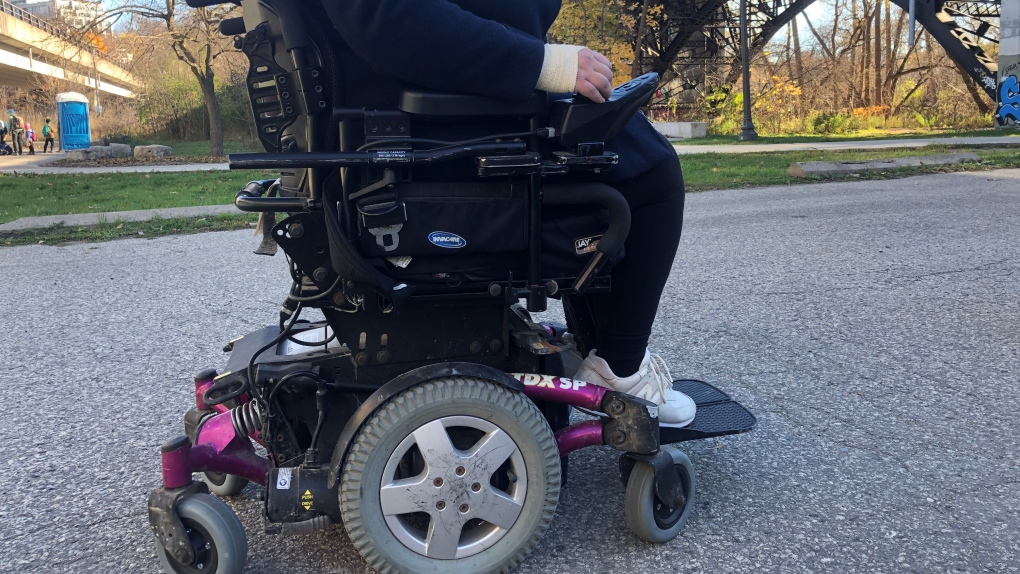 But Denise said she was warned by city staff that finding city subsidized housing that could accommodate her disability would be like “finding a needle in a haystack.”
But Denise said she was warned by city staff that finding city subsidized housing that could accommodate her disability would be like “finding a needle in a haystack.”
The federal government recognized the right to adequate housing as a fundamental human right in 2019, which Susannah Bunce, an associate professor of human geography at the University of Toronto, said the city needs to address.
“We need to start proactively discussing this in Toronto, about seeing housing as a human right and not something to be seen as a commodity,” Bunce said.
“It’s a situation that’s been produced by regulations that have been lifted by the provincial government, in particular over the last few years, to cater to the needs of landlords and people who want to invest in housing, rather than people who need good quality, safe, affordable housing.”
FINAL APPROVAL
Denise said there is only final paperwork standing between her and a medically-assisted death.
Funeral arrangements have been made and a power of attorney has been signed.
To be considered, an applicant needs two independent doctors or nurse practitioners to confirm they meet the criteria, which Denise has done. That goes alongside a written request for MAiD signed by the person who is applying for it.
Once the forms are filed, Denise will enter a 90-day wait period before MAiD takes place.
“It’s the only option,” Denise said.
“Living in an unsafe environment is so detrimental to me and it causes so much suffering that it is just physically unbearable.”
With files from CTV National News’ Avis Favaro and Heather Butts.
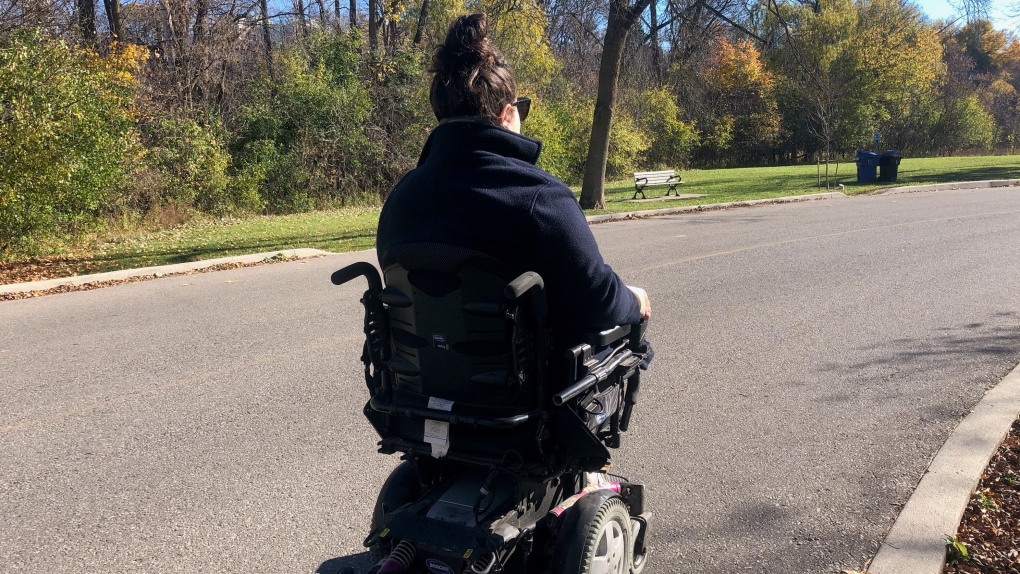
多倫多32歲殘疾女子住不起房,無奈選擇安樂死
Nov 19, 2022 加國無憂
一名32歲的多倫多殘疾女子在申請可負擔住房7年無果後,正處於申請安樂死(Medical Assistance in Dying,MAiD)的最後階段。

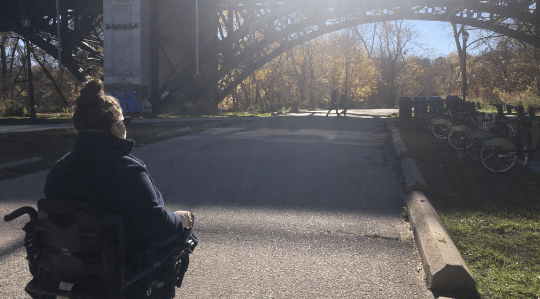
圖源:CTVNews
丹妮絲(化名)患有一種名為“多元性化學敏感症(multiple chemical sensitivity,簡稱MCS)”的疾病,即使接觸殘留在家中的常見化學物質,如洗衣粉和空氣清新劑,都會引發輕微的症狀,包括皮膚出現皮疹,偏癱性偏頭痛,並且過敏發作的風險一直籠罩著她。
由於上脊髓損傷,丹妮絲已經坐輪椅長達6年。她每月依賴於安省殘障保障計劃(ODSP)發放的1,278元援助金艱難度日。
在這種情況下,丹妮絲想要尋找一個可負擔的保障性住房,似乎是一種不可能實現的奢望。
在今年春天媒體報道丹妮絲的故事後,她獲得了超過1,000名捐助者的幫助,找到一個可供輪椅進出且空氣未受汙染的永久性住所。但六個月後,資金所剩無幾,她又得尋找其他房子。
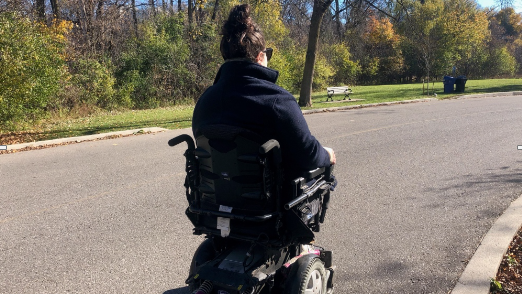
圖源:CTVNews
丹妮絲現在住在多倫多的一家酒店,位於一個被樹木和新鮮空氣包圍的峽穀中,她終於可以摘下呼吸器呼吸。
這家酒店是她能找到的唯一一家願意在她抵達前24小時,停止使用含有香料和化學品的清潔產品的臨時住所。
但是,長期住酒店對她來說,是一個完全不可持續的方法。
上個月,丹妮絲第一次找到一個提供低於市場租金的市屬單位,這是她10年來一直在尋找的住所,然而條件根本不適合居住。
她說,“房屋沒有足夠的空氣流通,隻有一扇窗戶,浴室裏充斥著黴味,還有蟑螂屍體的味道。這就是問題所在,基本上,這個城市沒有既適合多元性化學敏感症患者居住,又負擔得起的住所。”
她說,“我已經申請了安樂死的最終批準。”
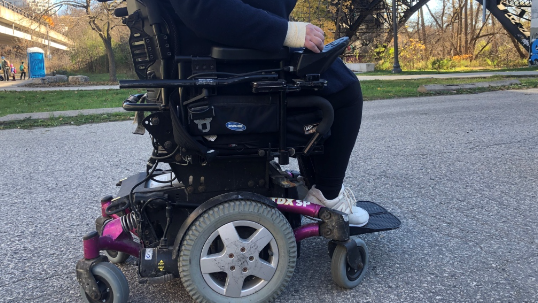
多倫多聖保羅選區新民主黨省議員安德魯(Jill Andrew)表示,她的辦公室在聽說丹妮絲申請可負擔住房無果後,於今年3月份與她取得聯係。
她說,“丹妮絲這種不穩定的情況永遠不應該發生,但對於安省尋求可負擔住房的人來說,這是毀滅性的現實。”
她的團隊寫信給安省省長福特、市政事務和房屋廳長克拉克(Steve Clark)和長期護理廳廳長富樂頓(Merrilee Fullerton),但都沒有得到回複。
她表示,“沒有人應該因為政府拒絕為無家可歸或殘疾人士的需求采取行動,而被迫尋求安樂死。丹妮絲需要政府的幫助,她沒有太多的時間了。”
克拉克回應媒體稱,省府在建造更多住房方麵取得了“曆史性成果”,以解決該省弱勢群體無家可歸的問題。與此同時,9 月份的安省殘障保障計劃的援助金增加了5%,這意味著受助者每月收到的款項變多了。
不過,他沒有直接談到丹妮絲的情況。
多倫多住房秘書處執行主任Abigail Bond表示,該市正在積極幫助丹妮絲獲得合適的住房以及住房補貼。
但丹妮絲說,市政府工作人員提醒她,想要找到適合她居住的的補貼住房就像“大海撈針”。
丹妮絲說,她距離執行安樂死隻剩下最後的文書工作了。葬禮已經安排好,委托書也已經簽署。
她說,“這是唯一的選擇。”
來源鏈接:
https://toronto.ctvnews.ca/toronto-woman-in-final-stages-of-maid-application-after-nearly-a-decade-long-search-for-housing-1.6145487





